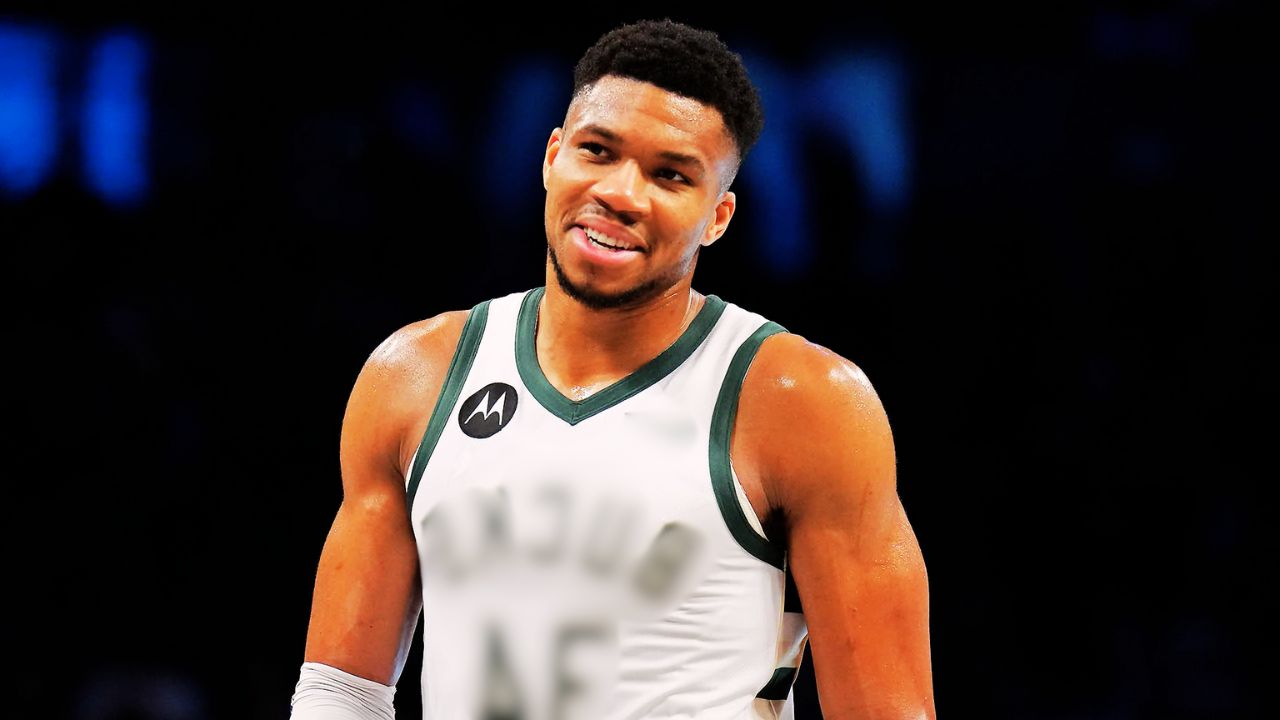The NBA has always been a place where discussions about player greatness from various eras thrive, thanks to its long history and constantly changing style of play. The most recent contribution to this ongoing discussion comes from a bold statement made by Anthony Edwards, causing a flurry of responses throughout the basketball community. Some current and past players have joined the debate, with a few supporting Edwards’ comments and others passionately defending the past legends. The central issue being debated is whether current athletes like Giannis Antetokounmpo could have excelled during the eras of Wilt Chamberlain and Michael Jordan.
Austin Rivers and Michael Porter Jr. Share their thoughts
The discussion took an unexpected turn when Austin Rivers, a current NBA player and son of famed coach Doc Rivers, shared a striking anecdote on his podcast, Off Guard. Recounting a dinner conversation, Rivers revealed that a friend had claimed Michael Jordan had only one truly impressive dunk in his career—a statement that left Rivers in disbelief. “I was just like, brother, this stuff is just getting out of hand,” Rivers remarked, highlighting the absurdity of dismissing Jordan’s legendary athleticism.
However, the conversation quickly pivoted to the broader topic of comparing players from different eras. Rivers expressed his frustration with such comparisons, stating, “I hate comparing eras because the evolution of basketball is just like a real thing, just like the evolution of everything else. How can you compare a Bill Russell to a center now?” His words echo a sentiment shared by many who argue that the rapid advancements in sports science, training methods, and even the pace of the game make such comparisons nearly impossible.
Yet, it was Rivers’ guest, Michael Porter Jr., who truly ignited the debate. “No, it’s better now. You take some of these players now and put, bro, if you put Giannis in that era, he would have been the best player to ever touch basketball,” Porter declared. The boldness of this statement cannot be understated. Giannis has already become known as one of the most dominant players in today’s game due to his distinctive combination of size, speed, and skill. However, is it possible that he has exceeded the achievements of those who came before?
Giannis battles Wilt Chamberlain in a hypothetical matchup.
To truly grasp the significance of Porter’s assertion, one needs to reflect on Wilt Chamberlain’s legendary performance on March 2, 1962. During that memorable evening, Chamberlain achieved a historic milestone by scoring an incredible 100 points against the New York Knicks, a remarkable feat that remains unmatched in sports history. Yet, a more in-depth analysis of the game uncovers fascinating details frequently overlooked.
Chamberlain needed 63 shot attempts to score 100 points, failing to make almost half of them. On the other hand, Kobe Bryant only took 46 shots to score 81 points against the Toronto Raptors in 2006. This inconsistency poses an intriguing question: Given the same chances, could a player such as Giannis, with his effectiveness and contemporary training methods, have surpassed Chamberlain’s record?
In the previous season, Giannis achieved his personal best by scoring 64 points against a strong Indiana Pacers team, only taking 28 shots to achieve this. Could Giannis potentially score over 100 points if he had the same number of shots as Chamberlain and were up against a weaker team? The mere idea questions the stories we cherish about the history and compels us to reassess the criteria for determining excellence.

Giannis Antetokounmpo
The Harsh Realities of NBA History
Porter’s claim that Giannis would have surpassed Wilt’s record and scored around 140 points in a single game is controversial. It compels us to face uncomfortable realities regarding the development of basketball. The league has significantly evolved since the eras of Chamberlain and Jordan, due to improvements in athletic training, strategic advancements, and an enhanced knowledge of player well-being.
But does this mean that modern players are inherently better? Or is it merely a reflection of how the game has evolved? Rivers himself acknowledges the complexity of this debate, admitting that it’s difficult to compare players across eras because of these very changes. “It’s almost unfair to compare the players from different times,” Rivers noted, emphasizing the context in which these legends operated.
A Discussion with an Indeterminate Outcome
While the argument continues, it is clear that a conclusive solution does not exist. Drawing comparisons between different periods is difficult due to the assumptions we must make about how athletes would perform under varying circumstances. However, these discussions are also what adds to the intrigue of the NBA. They enable supporters to link with the game’s past while participating in fervent conversations about its upcoming events.
There is a chance that Giannis Antetokounmpo might not be able to confirm Porter’s assertion, yet the idea alone excites basketball enthusiasts globally. Would he have been considered the best if he competed during Wilt’s time? Maybe. However, what is certain is that Giannis is a uniquely talented individual who has already made a lasting impact on the game during his career. As long as these discussions persist, the influence of players such as Giannis, Wilt, and Jordan will continue to be both dynamic and debated.


